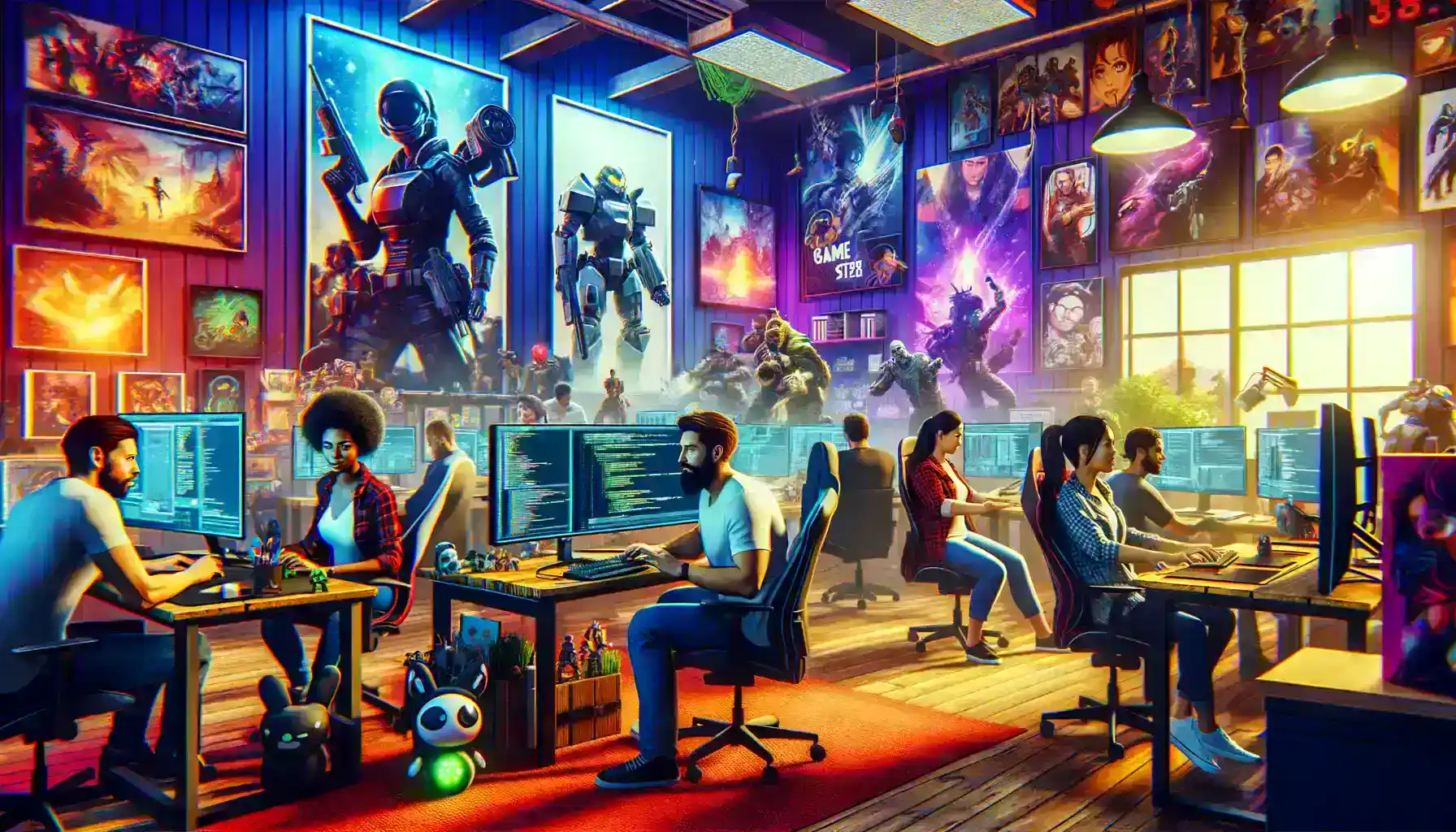Table of Contents
Artificial intelligence has proven to be highly effective in driving revenue for both apps and games, with an average uplift of approximately 20-30%. The use of Artificial Intelligence in game advertisements has been steadily increasing, contributing to the success of game monetization strategies.
Additionally, AI plays a crucial role in optimizing Non-Player Characters (NPCs), further enhancing the overall monetization process in the gaming industry.
Developers in the ever-evolving world of mobile and online gaming have been diligently working to find ways to generate revenue from their games. In this pursuit, Artificial Intelligence (AI) has emerged as a prominent and impactful strategy for game monetization.
Artificial Intelligence in Game Monetization: Ads

Currently, 46% of game developers are incorporating AI into their games. Among different models for monetizing apps or games, artificial intelligence consistently produces the greatest increase, typically ranging from 20% to 30%. This clearly indicates the significant impact AI will have in enhancing gameplay as we currently understand it.
The utilization of Artificial Intelligence in game monetization is explored in this article, highlighting its potential to revolutionize the gaming industry in the future.
AI-powered dynamic in-game advertisements have gained significant traction in the realm of in-game monetization. By accurately identifying paying users within a game, these ads effectively manage the frequency of their appearance, ensuring a seamless user experience while also presenting opportunities for in-app purchases (IAP).
AI-Enhanced Monetization: Dynamic Ad Pricing and Customer Support
This innovative approach not only boosts the conversion rate towards IAP within the game but also enables more efficient monetization of users who are less inclined to make payments through the utilization of ads. Moreover, AI has the capability to adapt ad prices in real time based on the demand for ad space within a game.
This dynamic pricing model optimizes the revenue generated from ad placements, guaranteeing developers the highest possible returns for their ad space.
Customer support plays a crucial role in the monetization of games by offering players more efficient and effective assistance while also generating revenue through different channels. AI has the potential to enhance customer support in various ways. By utilizing AI-powered chatbots and virtual assistants, game developers can provide round-the-clock customer support, ensuring that players have access to help whenever they require it.
AI-Driven Customer Support and NPC Optimization Artificial Intelligence in Game Monetization
This constant availability can result in higher player satisfaction and increased monetization as players continue to actively engage with the game. Moreover, AI-driven customer support can offer players personalized game content and special offers based on their gaming history and preferences. These tailored recommendations have the potential to boost player engagement and encourage additional in-game purchases.
Artificial intelligence-driven chatbots have the capability to efficiently address various player concerns, including payment difficulties, technical malfunctions, and inquiries related to user accounts.
AI has a crucial impact on game monetization through the optimization of Non-Player Characters (NPCs). These virtual entities fulfill supporting roles to enhance gameplay and storytelling. By designing well-crafted NPCs, AI can create captivating and challenging experiences, ultimately leading to improved player retention.
An impressive development in this field has been made possible by Generative AI (GenAI), which allows for the creation of custom dialogue flows to facilitate engaging conversations. The global GenAI in Gaming Market is projected to experience substantial growth, with an estimated revenue increase of approximately $7,105 million by 2032. This growth is expected to occur at a rate of 23.3% annually.
AI-Driven Personalization and Player Behavior Analysis in Monetizing Games
In conventional gaming, developers usually construct decision trees that predetermine the available choices for players during gameplay. Nevertheless, innovative developers are venturing into uncharted territories by generating additional dialogue content, enabling highly personalized interactions with non-playable characters (NPCs).
This approach can also encompass the creation of customized skins and other game accessories, tailoring the gaming experience to individual preferences. Furthermore, in-game purchases play a crucial role in game monetization through the use of artificial intelligence (AI). For example, NPCs can present quests, challenges, or opportunities to obtain virtual items, currency, or cosmetic upgrades. These interactions can effectively encourage players to make in-game purchases, thereby enhancing their overall gameplay experience.
The involvement of Artificial Intelligence in game monetization goes beyond just technical optimization. It has the ability to comprehend and utilize players’ behavioral patterns by means of player sentiment analysis. This analysis can be conducted through chat logs, reviews, or in-game interactions to determine their preferences and emotional states.
Enhancing Player Engagement Through AI-Driven Sentiment Analysis
Moreover, the algorithms that govern in-game systems can be informed by sentiment analysis. For instance, if the analysis detects player frustration, the Artificial Intelligence in game can modify game difficulty or offer hints to enhance the player experience, thereby keeping them engaged and increasing the likelihood of spending on in-game items.
AI’s analytical capabilities can be utilized to effectively influence player behavior, resulting in improved engagement rates.